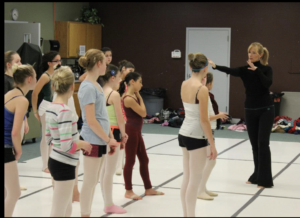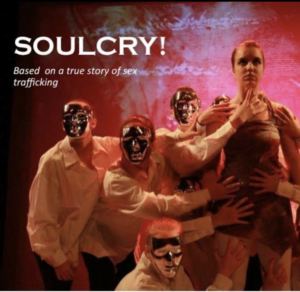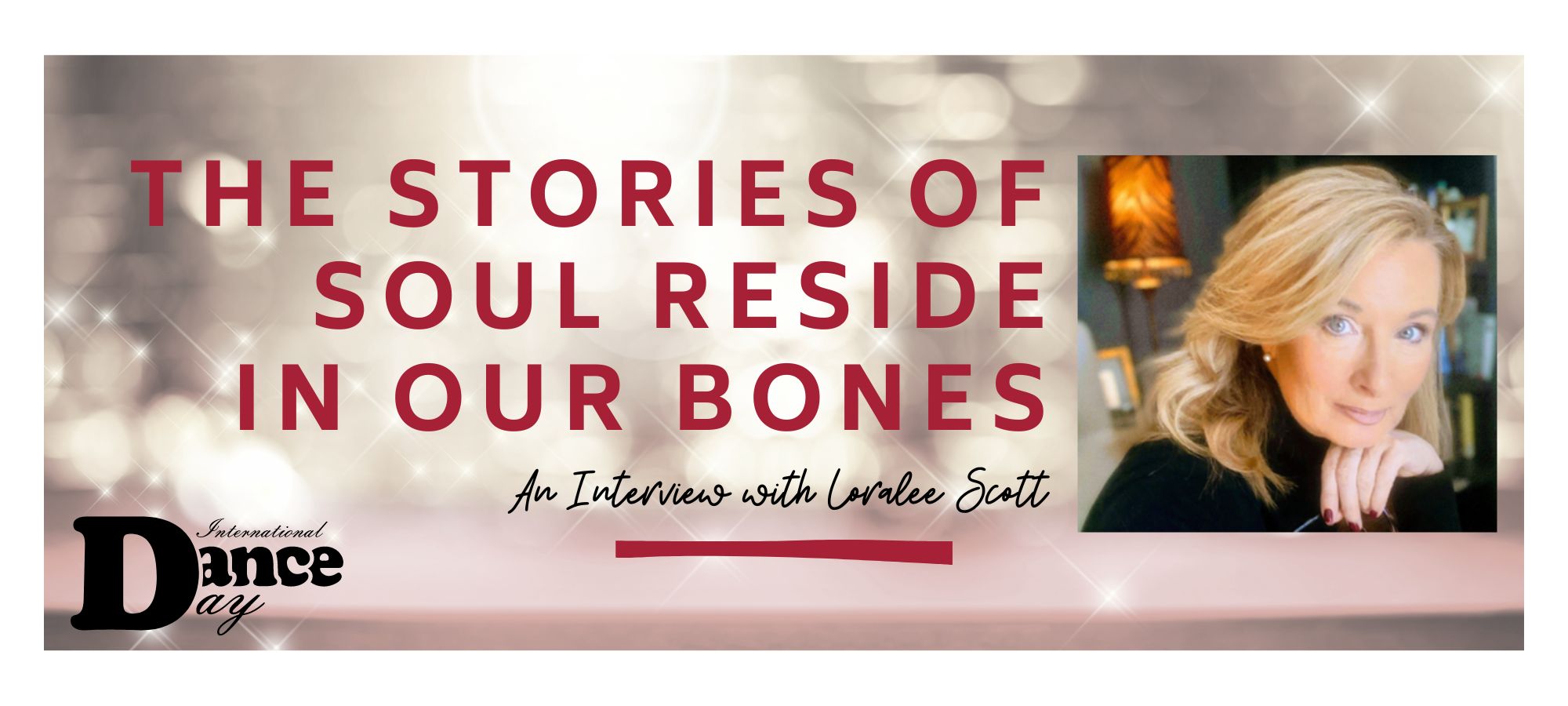Loralee M. Scott is the Senior Director of Pacifica Extension and International Studies, bringing over two decades of successful organizational leadership and a proven track record of post-graduate, Jungian informed curriculum design, development, and delivery. But she is also a dancer and an award-winning choreographer. I’m delighted to speak with her about dance and her life with dance.
Angela Borda: One thing I love and appreciate about you is that you are passionate about Jungian psychology and are inspired to create programming that springs from that passion. And you are also a dancer and choreographer. If you would, please tell us a little about your background and how you came to be interested in Jungian psychology and dance.

Loralee Scott: I am the second of three generations of classically trained dancers. My great grandfather was a clogger from the mountains of Vermont, my daughter recently graduated with a BFA in modern dance, so it seems dance is a part of my ancestral DNA. It was my life for a long while, but that changed, when my family started attending a Pentecostal church, which did not allow dance. I eventually wound up at a conservative Christian university taking Greek, and hermeneutics, and majoring in biblical studies. After college, I started a faith-based dance program and served as the Creative Arts Director for a large New England non-profit, where I wrote, choreographed, and produced large-scale theater productions with inner-city youth.
I didn’t connect with the work of C.G. Jung until much later, but when I did, it felt like I had discovered a language for what I had been working with all my life. At first, I spent a lot of time listening to other people tell me who Carl Jung was and what his psychology was about, but then I started reading the Collected Works for myself and that’s when it caught fire for me. I eventually went back to school and did an MFA that allowed me to dig into an unorthodox study of not only C.G. Jung, but Erich Neumann, Jolande Jacobi, Heidegger, Kant, Camus, along with the works of great choreographers like Martha Graham, Alvin Ailey, Twyla Tharp, and Crystal Pite. What I appreciated most about C.G. Jung was his prioritization of the creative unconscious and the soul and his insistent recognition that both of these were essential for the psyche to thrive.
Angela: In your past incarnation as the founder of the Ascend Dance Company and Arts Movement, you served as a dance teacher, choreographer, and playwright, and created a dance production titled “SoulCry!” about human trafficking. How did that production come about and what was its lasting impact?
Loralee: I didn’t plan for that to be political, but I was so torn apart about human trafficking, I felt I had to do something. And the one thing I knew how to do was make a dance. The production took on a life of its own. As a result of the premiere at Russell Sage College, two NY City Council Members who were in the audience approached me, and I worked with them for six months. As a result, SoulCry! was responsible for the first anti-trafficking legislation for Troy, New York.
Angela: Dance and Depth Psychology might seem an odd combination to some, although not to anyone at Pacifica. How does your interest in both of those things come together and alchemize?

Loralee: The common thread that pulls together all my work is an intense curiosity and fascination with transformation. When I would put together productions, it was about using dance as a vehicle to take the audience on a journey that spoke to their soul. When I discovered Jung, I found a vocabulary for things I’d been working with in the dance studio for years. When I make a dance, I go into the archetypal world and let that take the lead. I think that’s why my production staff would hand out tissues with the theater programs, because the audience would often be moved to tears. The power of the archetypal world to catalyze transformation is something I am still to this day totally passionate about.
My work as a choreographer enhanced my grasp of Jungian Psychology because Jung brought an artist’s orientation to his work. The psyche speaks a creative language. It is not linear or formulaic. C.G. Jung gave us an incredible illumination of the symbolic language of the creative unconscious. My work in dance, theater, and the church gave me the prima materia that brought my studies in Jungian Psychology to life. Moving from dance theater to developing and leading Jungian courses, conferences, and retreats felt like a logical progression for me, the next step in the dance.
Of course, there are the legacies of Marion Woodman and her scholarship with the body, movement and dance, and the stories of James Hillman, learning to tap dance in his sixties. To an outsider, these stories may seem odd or weird in a graduate school, but they speak to the core of what differentiates a depth psychological approach and are a central part of what makes Pacifica a one-of-a-kind education.
Angela: April 29th is the International Day of Dance, so it is a good moment to reflect on the importance of dance, what it means to you personally and to our culture.
Loralee Scott: In a world where we’re struggling with modern soul loss and spending huge amounts of time behind our laptops, immobilized and enthralled, it’s more important than ever that we as a culture begin to engage with dance not only as a way to connect with the body but with the understanding that soul comes through our bodies. Stories of soul reside in our bones, and when there’s trauma that can’t be spoken about, we have to delve into the waters of movement. If you do that, the stories will present themselves. They’re going to come out.
Steinbeck said to write the truest thing you know. That can be difficult in a culture where we are more conditioned to curate a persona for social media or a personal brand than to lean into our authentic self. But movement only speaks one language and it’s deep truth. That truth emerges when we start to work somatically. That’s why it’s important to have training to do this work, to guide people into it, through it, and out of it. The authenticity of movement has nothing to do with the format or content, but with the engagement of the dancer. There is a moment when the dancer is danced. In depth psychological terms, that’s the moment when the dancer immerses themselves in the archetypal, and the archetypes move through them. When that dancer is electrified and being moved by something larger than themselves, it’s an embodied experience, even for the audience members. Dancers open themselves to the archetypal truths and realities that Jung wrote about. Dancers engage with an embodied way of knowing. I can’t imagine a world without dance.
Angela: You are co-teaching a workshop with Elizabeth Nelson about somatics and dance. Can you share with us more about the class and what you are looking forward to about it?
Loralee: I am thrilled to be working with Elizabeth Nelson and an incredible cadre of somatic faculty in offering a one-of-a-kind certificate course in Applied Somatic Jungian Psychology. We will be launching this online course with a 3-day on-campus residency where students will have the opportunity to work with Elizabeth, myself and several other somatic practitioners and immerse themselves in movement, to dance, to create, and to explore the archetypal wisdom that is held in our bones. The residency will combine several different movement workshops with interactive learning sessions that will highlight the integration of Jungian principles with embodied processes. Situating a somatic approach within a Jungian framework opens up the many ways in which the creative unconscious speaks an embodied symbolic language and creates the conditions for resilience and transformative growth. We are already getting requests from people who want to be a part of this course, so we are expecting it to fill quickly.
Angela: Thank you so much for sharing some of your experiences with dance, and I look forward to experiencing your teaching.

Loralee M. Scott is the Senior Director of Pacifica Extension and International Studies. In addition to an MFA in inter-disciplinary studies, she brings over two decades of successful organizational leadership and a proven track record of post-graduate, Jungian informed curriculum design, development and delivery. A thought-leader, entrepreneur and sought-after speaker, she has lectured internationally in several countries. Her work as an award-winning choreographer was responsible for the passage of anti-trafficking legislation in Troy, NY and is featured in the book: Grief and the Expressive Arts published by Routledge. She is passionate about creating communities where soulful engagement and transformative learning can happen.

Angela Borda is a writer for Pacifica Graduate Institute, as well as the editor of the Santa Barbara Literary Journal. Her work has been published in Food & Home, Peregrine, Hurricanes & Swan Songs, Delirium Corridor, Still Arts Quarterly, Danse Macabre, and is forthcoming in The Tertiary Lodger and Running Wild Anthology of Stories, Vol. 5.


